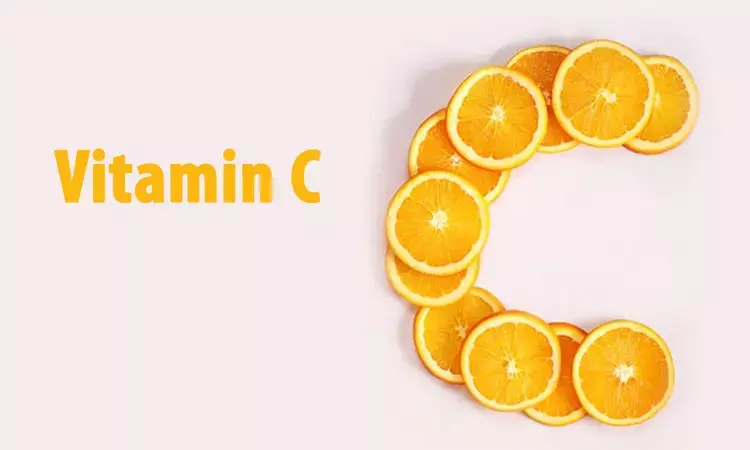- Home
- Medical news & Guidelines
- Anesthesiology
- Cardiology and CTVS
- Critical Care
- Dentistry
- Dermatology
- Diabetes and Endocrinology
- ENT
- Gastroenterology
- Medicine
- Nephrology
- Neurology
- Obstretics-Gynaecology
- Oncology
- Ophthalmology
- Orthopaedics
- Pediatrics-Neonatology
- Psychiatry
- Pulmonology
- Radiology
- Surgery
- Urology
- Laboratory Medicine
- Diet
- Nursing
- Paramedical
- Physiotherapy
- Health news
- Fact Check
- Bone Health Fact Check
- Brain Health Fact Check
- Cancer Related Fact Check
- Child Care Fact Check
- Dental and oral health fact check
- Diabetes and metabolic health fact check
- Diet and Nutrition Fact Check
- Eye and ENT Care Fact Check
- Fitness fact check
- Gut health fact check
- Heart health fact check
- Kidney health fact check
- Medical education fact check
- Men's health fact check
- Respiratory fact check
- Skin and hair care fact check
- Vaccine and Immunization fact check
- Women's health fact check
- AYUSH
- State News
- Andaman and Nicobar Islands
- Andhra Pradesh
- Arunachal Pradesh
- Assam
- Bihar
- Chandigarh
- Chattisgarh
- Dadra and Nagar Haveli
- Daman and Diu
- Delhi
- Goa
- Gujarat
- Haryana
- Himachal Pradesh
- Jammu & Kashmir
- Jharkhand
- Karnataka
- Kerala
- Ladakh
- Lakshadweep
- Madhya Pradesh
- Maharashtra
- Manipur
- Meghalaya
- Mizoram
- Nagaland
- Odisha
- Puducherry
- Punjab
- Rajasthan
- Sikkim
- Tamil Nadu
- Telangana
- Tripura
- Uttar Pradesh
- Uttrakhand
- West Bengal
- Medical Education
- Industry
No notable benefit of Vitamin C, thiamine, steroids combo in septic shock: JAMA

A new trial called the ACTS randomized control trial has found that combination therapy with Vitamin C (ascorbic acid), corticosteroids, and thiamine did not show any significant benefit for the patients with septic shock. The recent study was published in the journal, JAMA Network, 2020.
The combination of Vitamin C, corticosteroids, and thiamine has been identified as a potential therapy for septic shock.
Sepsis is a highly morbid condition where antibiotics and source control remain the mainstay of treatment. Previous studies found that thiamine attenuated renal damage and thus mortality in septic patients. Other studies have also found that ascorbic acid improved clinical outcomes and corticosteroids had a synergistic effect on ascorbic acid levels. As the combination of ascorbic acid, corticosteroids, and thiamine has been identified as a potential therapy for septic shock, various researchers from different centers conducted a trial to determine the effect of the combination therapy with ascorbic acid, corticosteroids, and thiamine on the attenuation of organ injury in patients with septic shock.
The study was a randomized, blinded, multicenter clinical trial conducted between February 9, 2018, and October 27, 2019, at 14 centers in the United States and followed up till November 26, 2019. Two hundred five adult patients with septic shock were enrolled. Patients were randomly assigned two groups to receive parenteral Vitamin C (ascorbic acid) 1500 mg, hydrocortisone (50 mg), and thiamine (100 mg) every 6 hours for 4 days (n = 103) or placebo in matching volumes at the same time points (n = 102). The primary outcome was to measure the change in the Sequential Organ Failure Assessment (SOFA) score (range, 0-24; 0 = best) between enrolment and 72 hours and the secondary outcome of measurement was to check the kidney failure and 30-day mortality.
The key findings of the study:
• Among 205 randomized patients, the mean age with SD was 68±15 years.
• out of these 90 were [44%] women.
• 200 (98%) received at least 1 dose of study drug, completed the trial, and were included in the analyses (101 with intervention and 99 with placebo group).
• Overall, there was no statistically significant interaction between time and treatment group regarding SOFA score over the 72 hours after enrolment.
• There was no statistically significant difference in the incidence of kidney failure or 30-day mortality.
• The most common serious adverse events were hyperglycaemia (12 patients with intervention and 7 patients with placebo), hypernatremia (11 and 7 patients, respectively), and new hospital-acquired infection (13 and 12 patients, respectively).
Thus, the trial concluded that in patients with septic shock, the combination of Vitamin C (ascorbic acid), corticosteroids, and thiamine, compared with placebo, did not result in a statistically significant reduction in SOFA score during the first 72 hours after enrolment. Hence, by this data, the researchers did not support the routine use of this combination therapy for patients with septic shock.
For further reading, click the following link:
BDS, MDS
Dr.Niharika Harsha B (BDS,MDS) completed her BDS from Govt Dental College, Hyderabad and MDS from Dr.NTR University of health sciences(Now Kaloji Rao University). She has 4 years of private dental practice and worked for 2 years as Consultant Oral Radiologist at a Dental Imaging Centre in Hyderabad. She worked as Research Assistant and scientific writer in the development of Oral Anti cancer screening device with her seniors. She has a deep intriguing wish in writing highly engaging, captivating and informative medical content for a wider audience. She can be contacted at editorial@medicaldialogues.in.
Dr Kamal Kant Kohli-MBBS, DTCD- a chest specialist with more than 30 years of practice and a flair for writing clinical articles, Dr Kamal Kant Kohli joined Medical Dialogues as a Chief Editor of Medical News. Besides writing articles, as an editor, he proofreads and verifies all the medical content published on Medical Dialogues including those coming from journals, studies,medical conferences,guidelines etc. Email: drkohli@medicaldialogues.in. Contact no. 011-43720751


